10 Superfoods Every Doctor/Dentist Should Eat: Some foods are so nutritious that they’re described as superfoods. They are foods that contain a high amount of nutritional content that are essential to the proper functioning of the body system.
Doctors are typically very professionals and most of them don’t have the luxury of time to prepare and eat good meals. As a result, they may be missing out on key nutrients in their body system. It is important for doctors to have all the needed nutrients in their bodies so that they can function well in their day-to-day healthcare services.
Superfoods are healthy and possess essential nutrients. As a doctor, eating superfoods can help keep you energized, sharp in memory, and healthy. Superfoods can provide you with the strength and mental clarity that you need to excel in your medical practice.
We are going to enumerate 10 superfoods that you should eat as a doctor.
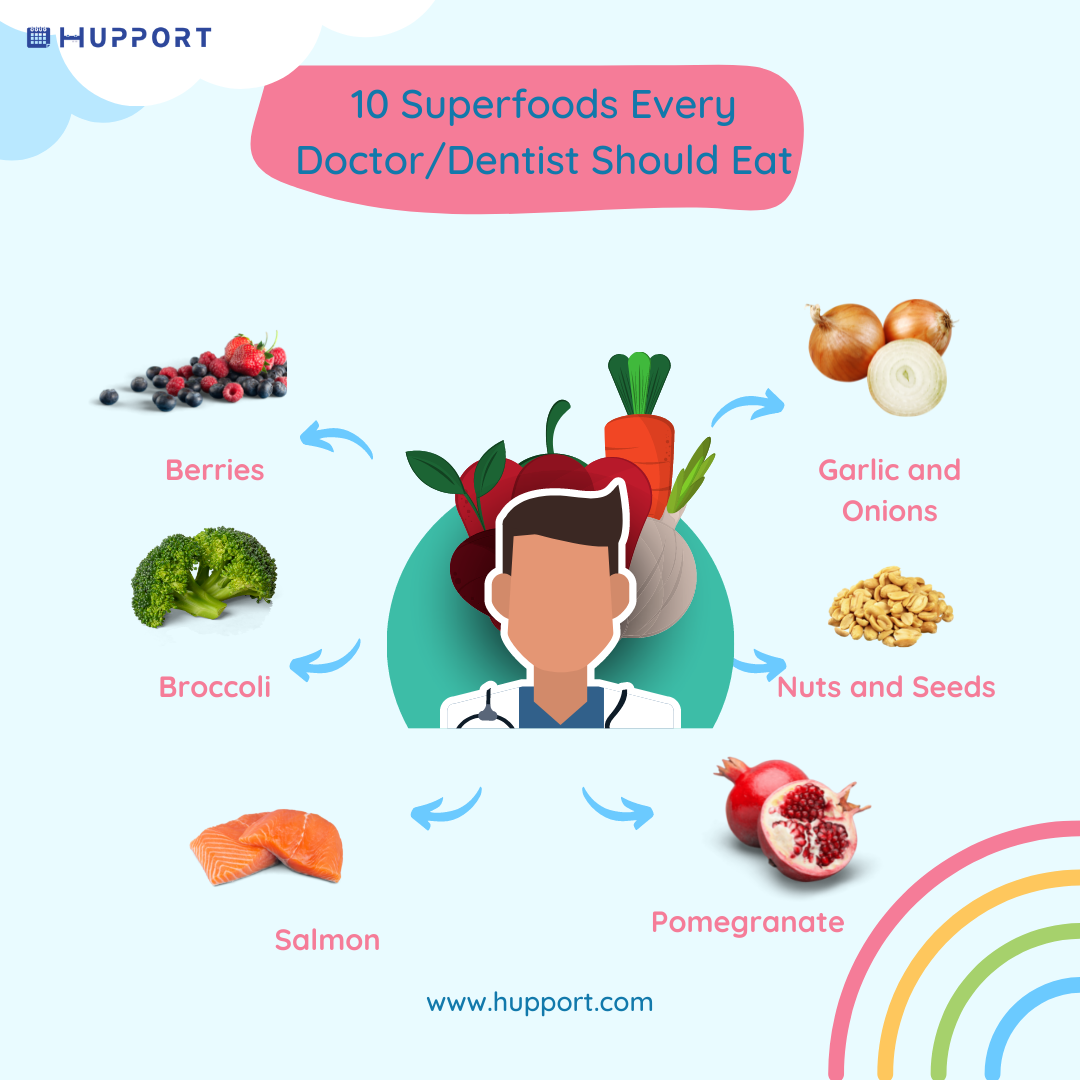
10 Superfoods Every Doctor/Dentist Should Eat
1. Berries

Berries are on the list of superfoods that every doctor should eat. Berries are highly nutritious and they are low-calories. Berries such as blackberries, blueberries, strawberries, raspberries, and cranberries have many health benefits. Berries help to keep the brain healthy.
Blueberries are highly nutritious and are packed with potent flavonoids, which have been shown to have cardiovascular and metabolic health benefits. Blueberries also have anti-inflammatory and cancer-fighting properties.
Berries are low-calorie and high in fiber. They have antioxidants properties that help fight against cancer-causing free radicals. The antioxidants properties of blueberries may help lower the risk of diabetes, heart disease, and Alzheimer’s disease.
2. Broccoli

Broccoli
Broccoli is another superfood that helps to lower the risk of cancer and other diseases. Broccoli is a cruciferous vegetable with many health benefits such as lowering the risk of cancer and preventing heart attacks and stroke.
Broccoli and other types of cruciferous vegetables such as Brussels sprouts, bok choy, cauliflower, cabbage, and maca are energy boosters. Cruciferous vegetables are full of fiber. They don’t contain fat and they make you feel full for a longer period, which could help with weight loss.
Broccoli and other cruciferous vegetables contain compounds known as indole glucosinolates. These compounds help to maintain the balance of healthy bacteria in your gut. They could also reduce or prevent digestive conditions such as ulcerative colitis and Crohn’s disease.
3. Salmon
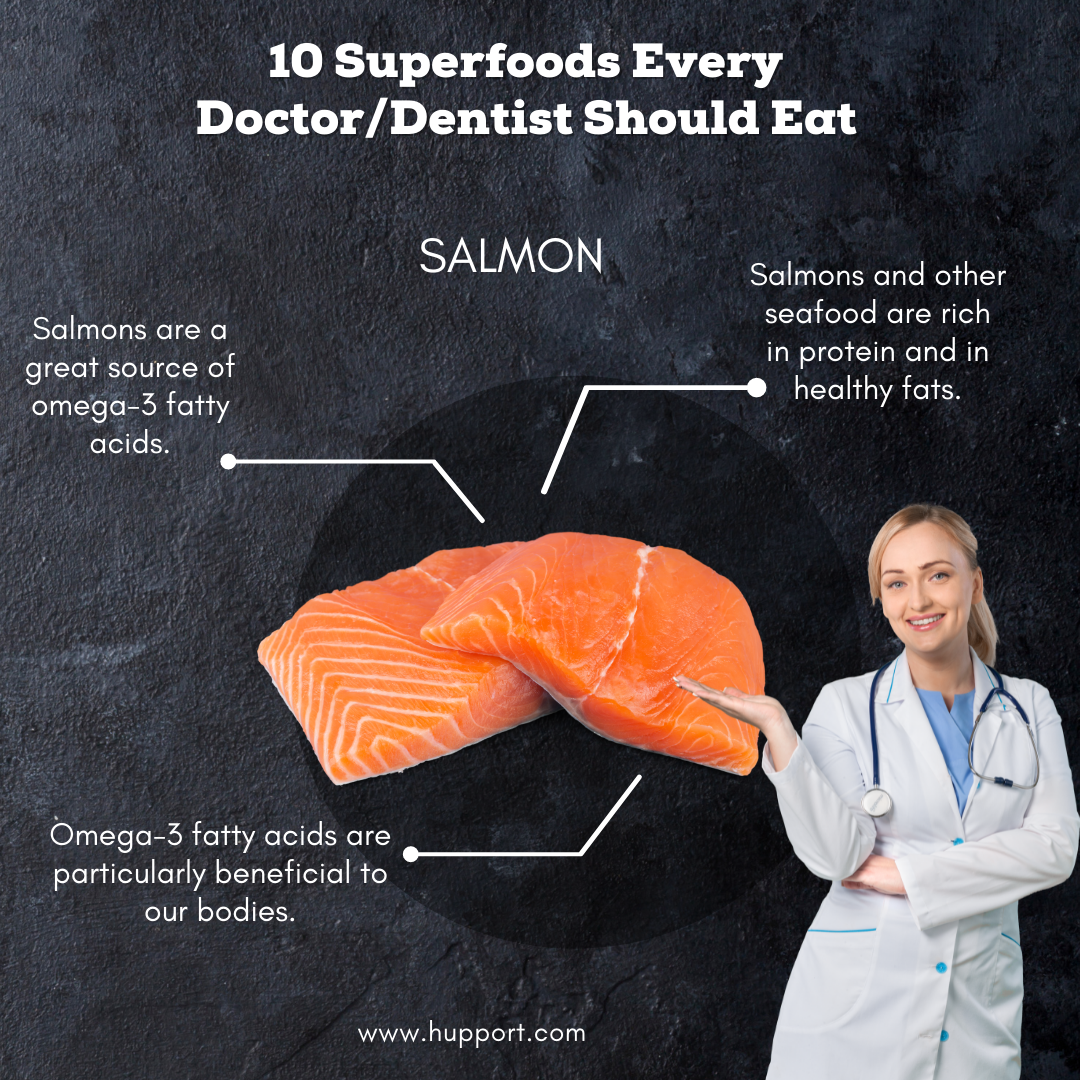
Salmon
Salmons are a great source of omega-3 fatty acids. Salmons and other seafood are rich in protein and in healthy fats. Omega-3 fatty acids are particularly beneficial to our bodies.
Omega-3 fatty acids can play a role in reducing your risk of heart attack and stroke. Omega-3 fatty acids can also help alleviate depression, and aid infant development.
4. Pomegranate
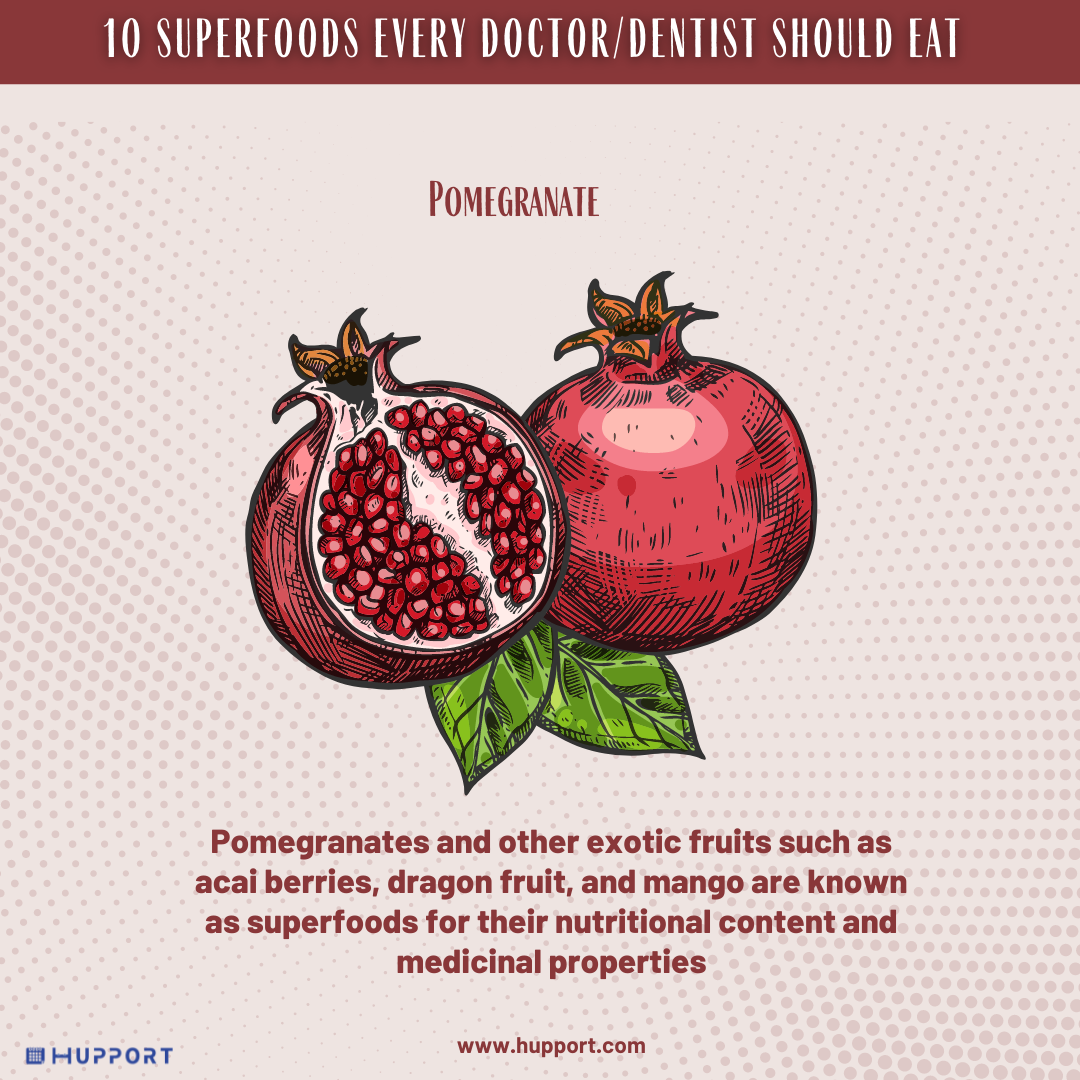
Pomegranate
Pomegranates and other exotic fruits such as acai berries, dragon fruit, and mango are known as superfoods for their nutritional content and medicinal properties. Pomegranates may help bolster heart health, and act as dietary supplements that could prevent cardiovascular diseases.
5. Citrus fruits
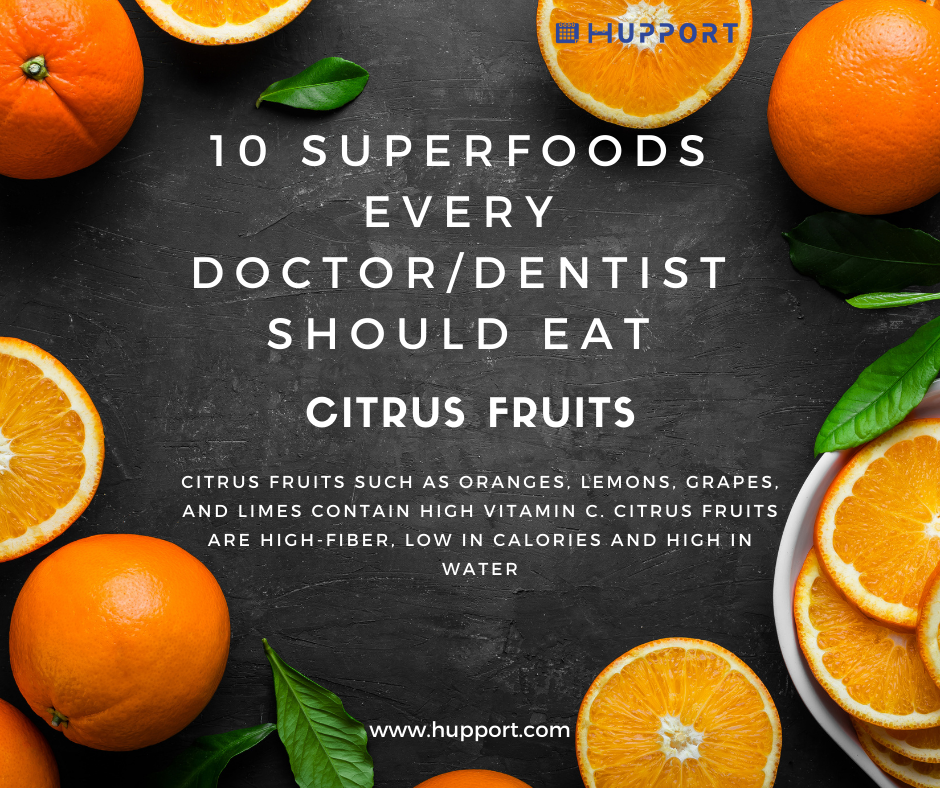
Citrus fruits
Citrus fruits such as oranges, lemons, grapes, and limes contain high vitamin C. Citrus fruits are high-fiber, low in calories and high in water. Vitamin C is necessary for the growth, development and repair of all body tissues. Vitamin C is involved in many body functions, including formation of collagen, absorption of iron, and the proper functioning of the immune system. Vitamin C also helps in wound healing, and the maintenance of cartilage, bones and teeth.
6. Nuts and Seeds
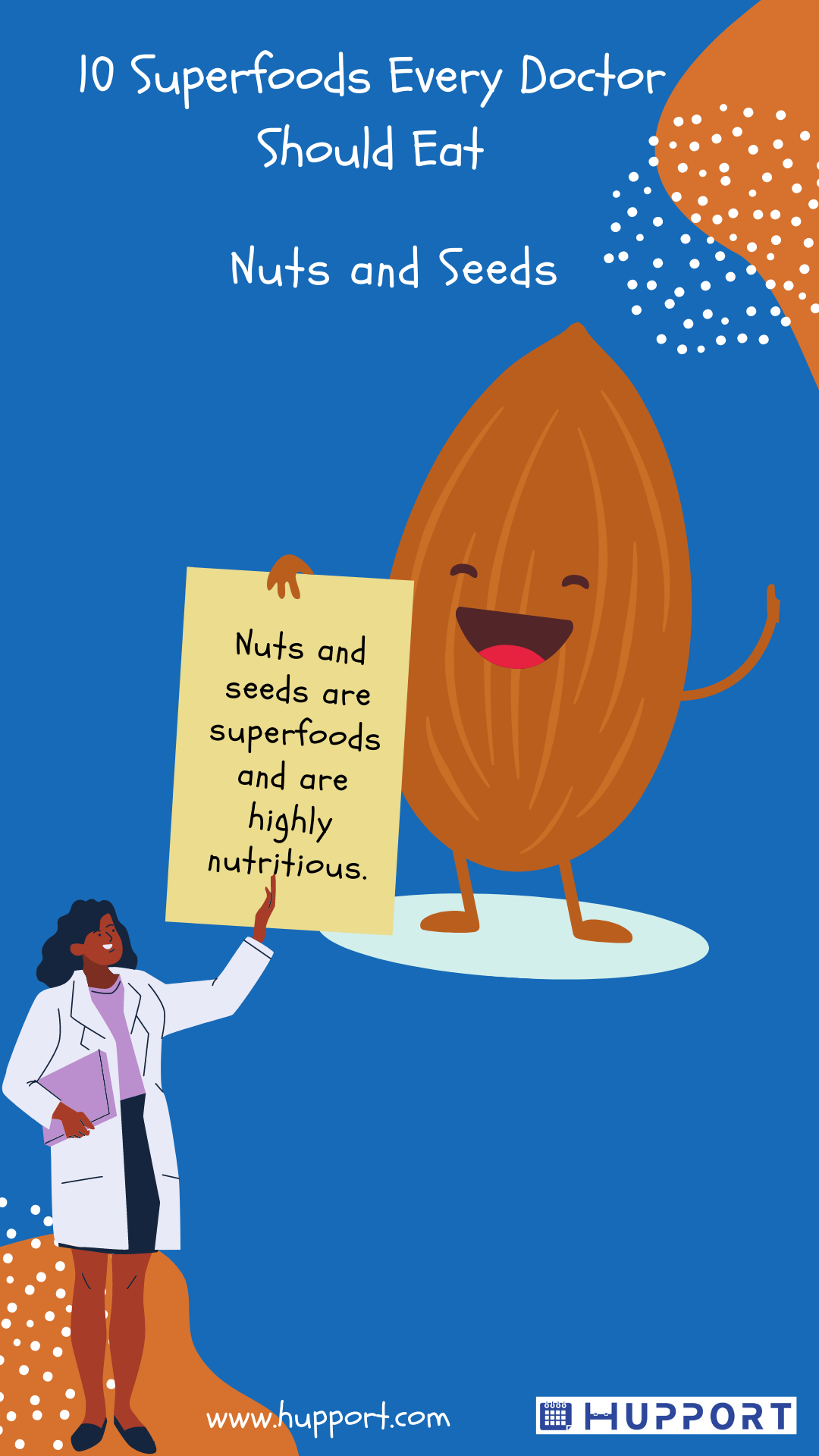
Nuts and Seeds
Nuts and seeds are superfoods and are highly nutritious. Nuts such as almonds help to enhance the health of the heart, cashews enhance cognition, and Brazil nuts help to prevent cancer. Walnuts have antioxidant power and they can help prevent diseases and certain types of cancers. Nuts are a great source of fat, fiber, and protein. They supply a powerful punch of plant protein.
Seeds such as flaxseeds, chia seeds, and hemp seeds contain vitamins and minerals.
Though nuts contain fat, they keep you feeling full for a longer period of time. This helps to reduce your risk of weight gain.
7. Garlic and Onions
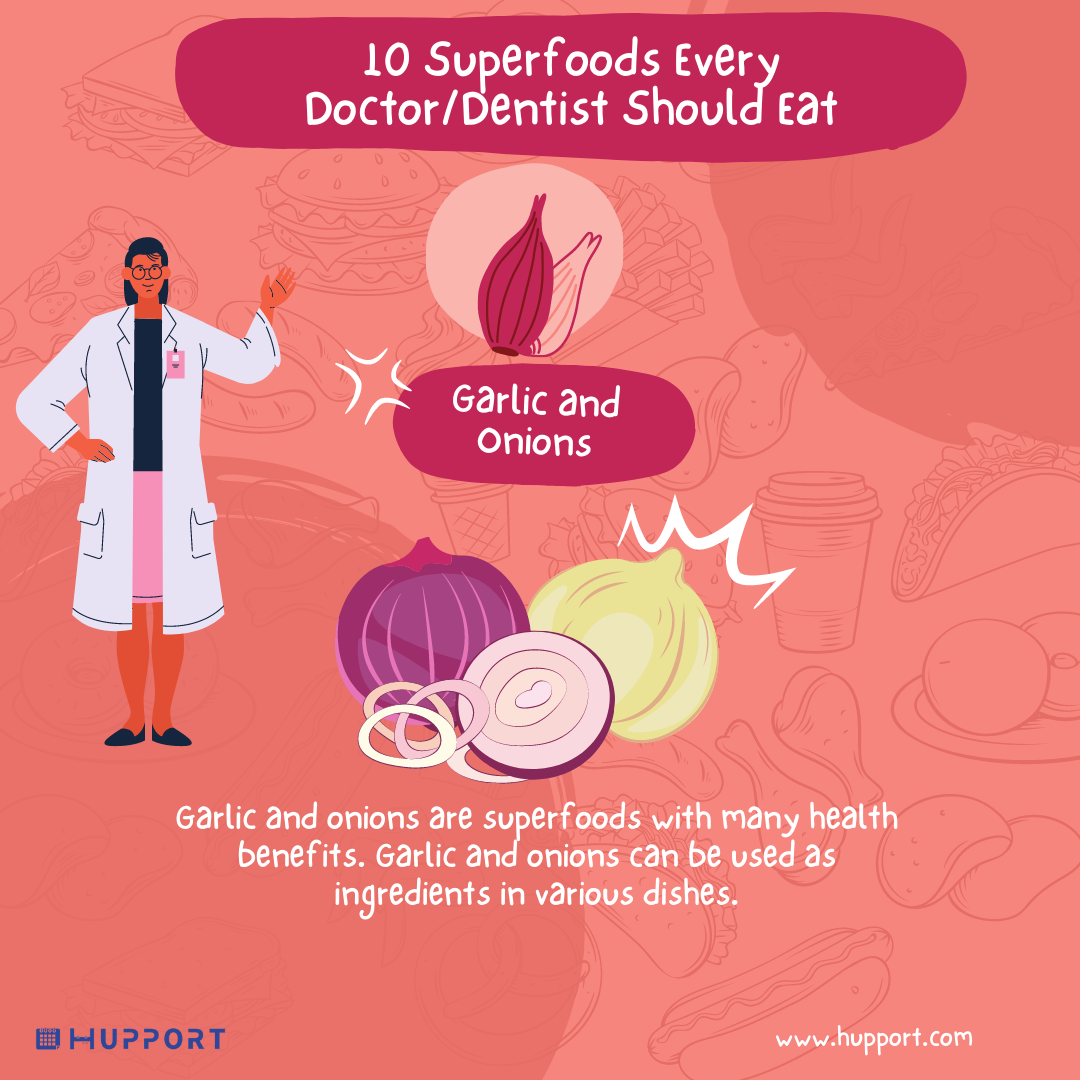
Garlic and Onions
Garlic and onions are superfoods with many health benefits. Garlic and onions can be used as ingredients in various dishes. Garlic has antibacterial and antiviral properties that can help to shield you from bacterial and viral infections. Garlic may benefit people living with diabetes, high cholesterol, and high blood pressure.
Onions of are good sources of vitamin C, vitamin B6, potassium and folate. Garlic and onions contribute to healthy blood pressure levels.
Eating onion and garlic has been linked to numerous health benefits. These include lowered cholesterol, blood pressure and reduce risk of cancer.
8. Potatoes
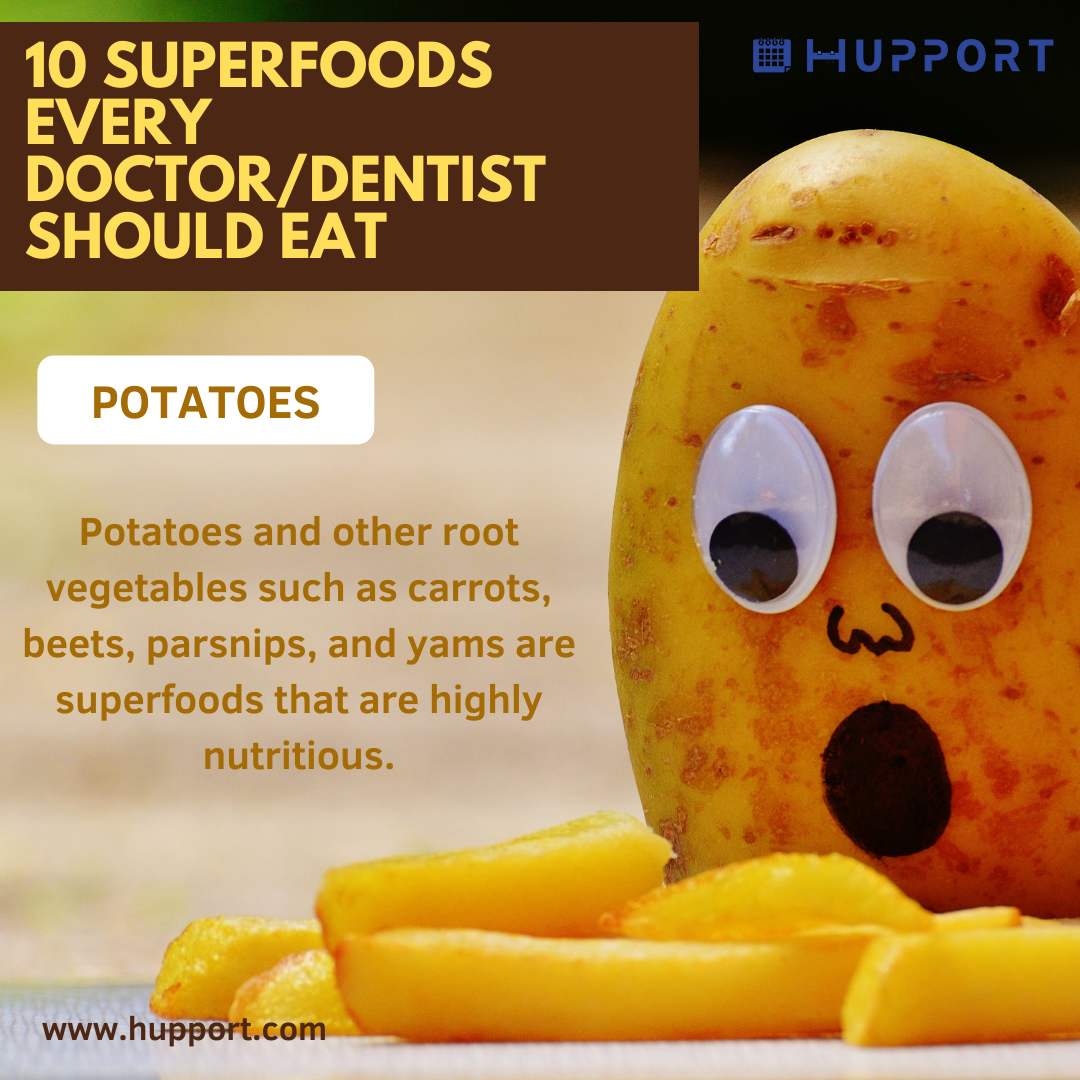
Potatoes and other root vegetables such as carrots, beets, parsnips, and yams are superfoods that are highly nutritious. They contain healthy carbs and starches that provide energy. They are gluten-free, healthy sources of carbs that help fight diseases. Potatoes and other root vegetables contain anti-inflammatory, antioxidative, and antimicrobial properties and may contribute to preventing diabetes, obesity, cancer, and other health conditions.
9. Beans and Legumes
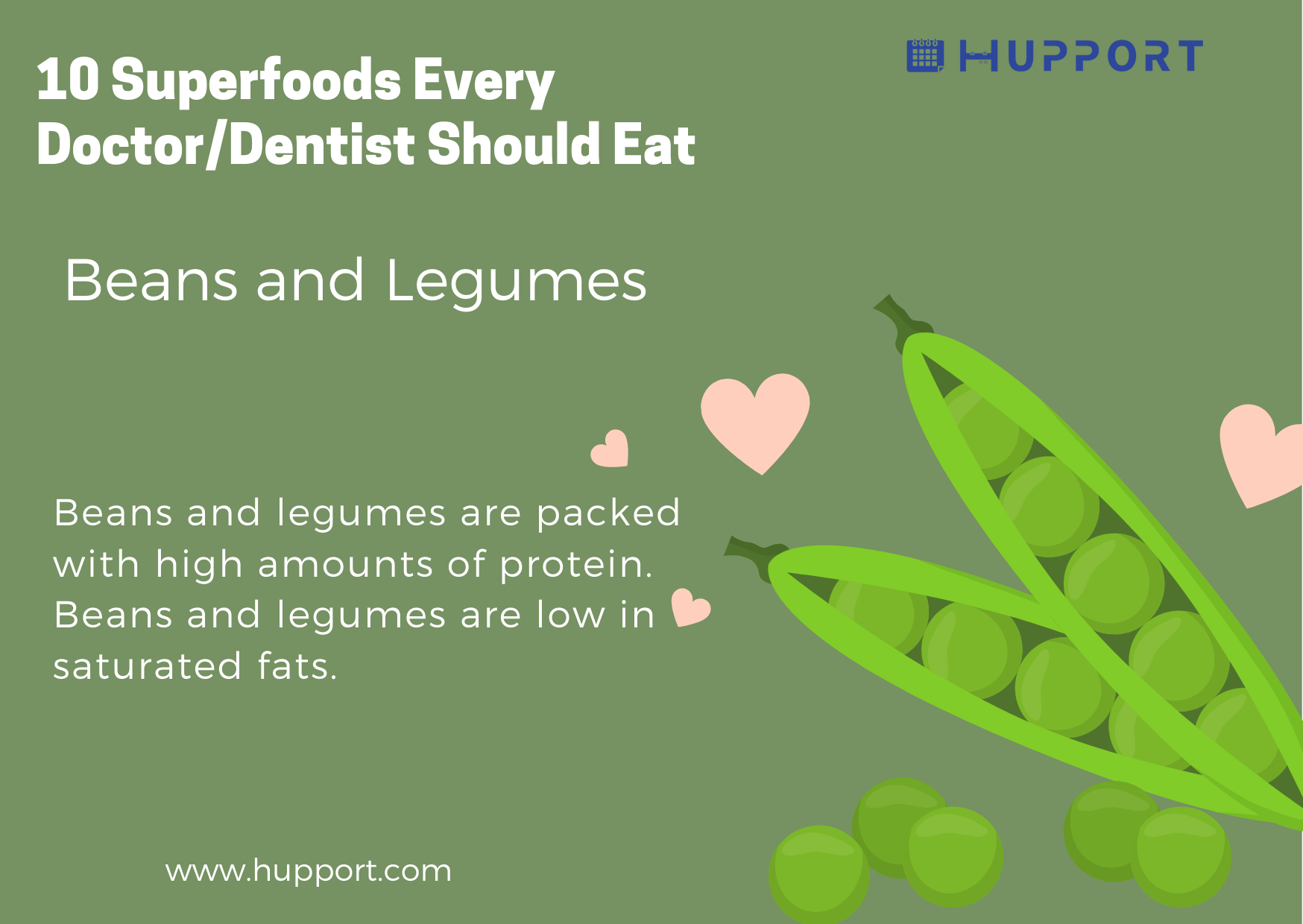
Beans and Legumes
Beans and legumes are packed with high amounts of protein. Beans and legumes are low in saturated fats. Beans and legumes are packed with many nutritional content including plant protein, fiber, B-vitamins, iron, folate, calcium, potassium, phosphorus, and zinc.
The high levels of fiber and vitamins in beans and legumes can help with weight loss and regulating blood sugar levels. Beans are a great source of fiber and fiber helps to protect against heart disease, high cholesterol, high blood pressure, and digestive illness.
10. Fermented foods
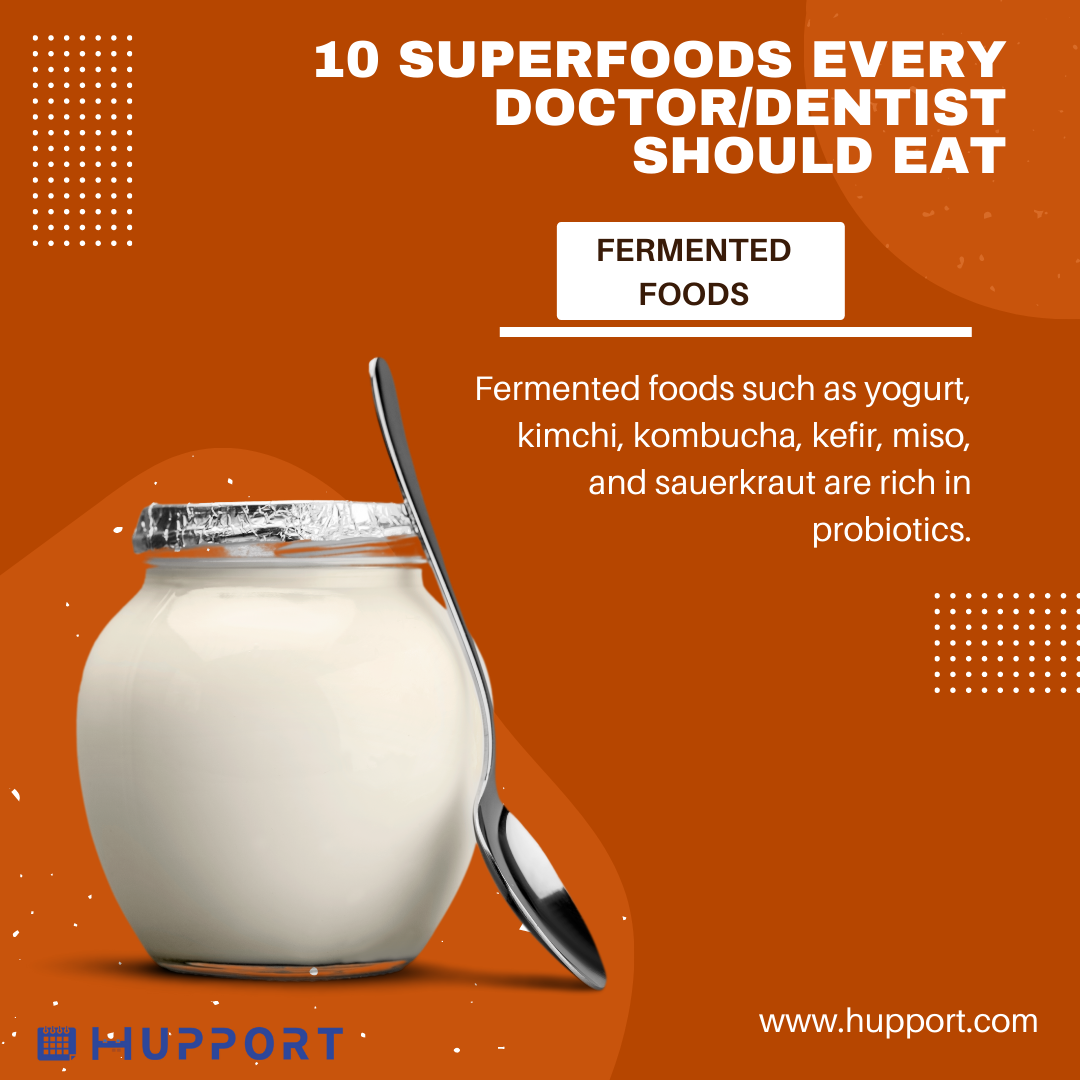
Fermented foods
Fermented foods such as yogurt, kimchi, kombucha, kefir, miso, and sauerkraut are rich in probiotics.
Probiotics are healthy bacteria, and the body produces millions of them. Probiotics may contribute to a healthy gut microbiome and play a role in preventing diseases. The live bacteria in yogurt help to reduce the risk of chronic inflammatory conditions such as Crohn’s disease, rheumatoid arthritis, and ulcerative colitis.
Fermented foods are rich in probiotic bacteria and when you consume them you are adding beneficial bacteria and enzymes to your intestinal flora. This increases the health of your gut microbiome and digestive system and enhances your immune system.



